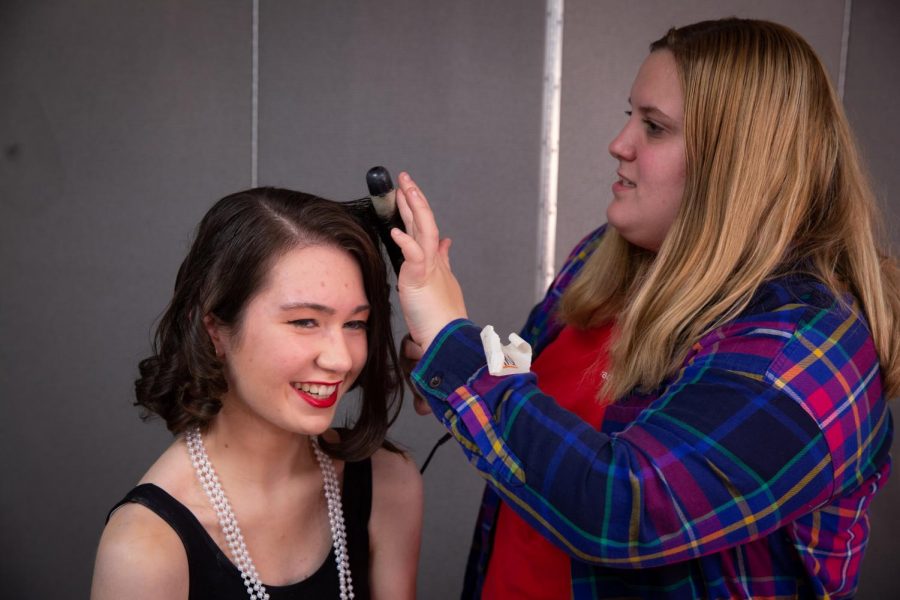Behind the Scenes of the Theater
Hair and make-up were just one of the many pieces of a successful show.
December 3, 2019
In recent years, Broadway musicals and plays have made a come back. More and more people everyday are going to theater performances. While the actors and actresses are important for telling the story of the show people go to see, there is so much more to the show.
When people watch the show, they are not aware of all the work that is going on backstage to make the show happen. Whenever a person sees the lights change, a costume change, or a set move, he/she should be aware of the people hard at work behind the scenes. Some of the technical and creative crews people can thank are costumes/makeup/hair, lighting, sound, and stage management. Even though each crew has a specialty, they are in constant contact with the other crews to make sure everything looks perfect.
Costumes, makeup, and hair are in charge of the physical appearances of the actors. Each little detail from a hair accessory to the amount of blush used is researched by the heads to make sure it’s accurate to the time period.
Lighting and sound both work are on the technical side of the crews. Lighting is in charge of the lighting on the stage and in the house (where the audience sits). They work with the makeup crew to make sure the lighting won’t wash out the actors. Sound crew makes sure all the actors are mic’d up and that the pit can be heard.
The stage managers are one of the most important people once the show starts. The director is in charge of a lot of creative thinking when blocking the show, but once shows start running, the stage managers take charge. Stage managers keep in contact with all the other crews to make sure everything is running smoothly. When the shows start, they tell lighting the different lighting crews and make sure all set, prop, and other things are ready to be moved.
While those are the more backstage crews, there are other crews that aren’t mentioned as much. Some of those include the production manager, house manager, and dramaturgs. The production managers are in charge of financial matters and advertising. House managers oversee anything that has to do with the audience. They welcome them at the door and make sure that the audience has everything they need. Dramatrugs research the time period. They research the meaning of different slang used, what people wore and more.
There are so many details of shows that go unnoticed by the audience that the crews are in charge of. Tech week is when everything finally comes together. All the crews and actors spend hours working, making sure everything can run flawlessly. If crews weren’t involved in performances, there wouldn’t be a show.
Current student crew heads at Loyola:
Stage management: Catherine Flannery
Lighting: Haley Bargo
Sound: Emilia Rosinski
Costume/makeup: Mary Claire Foley

